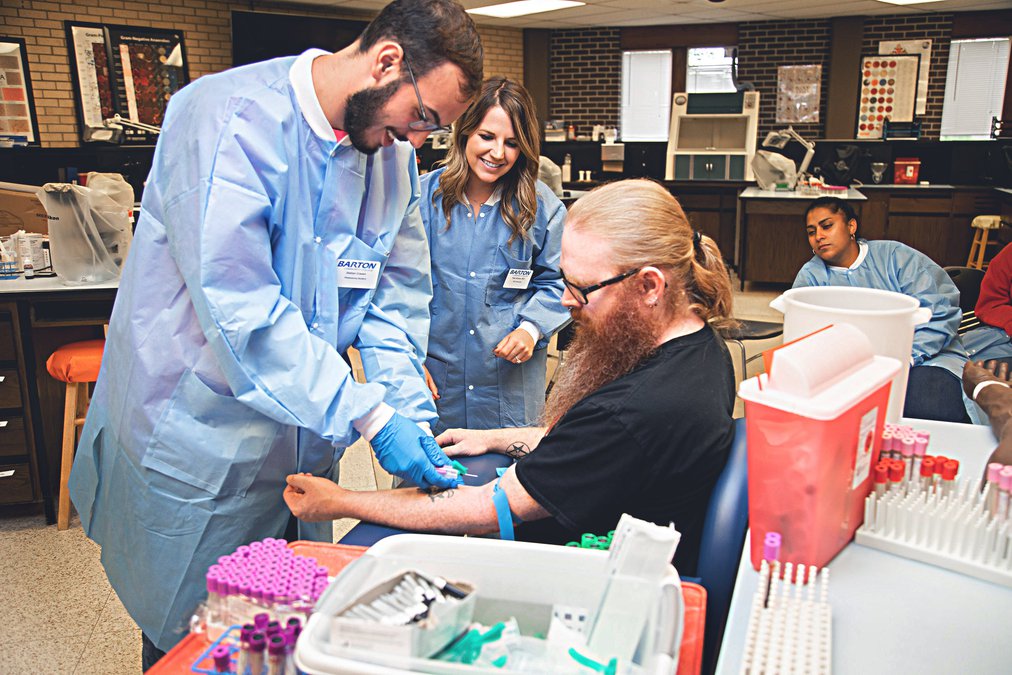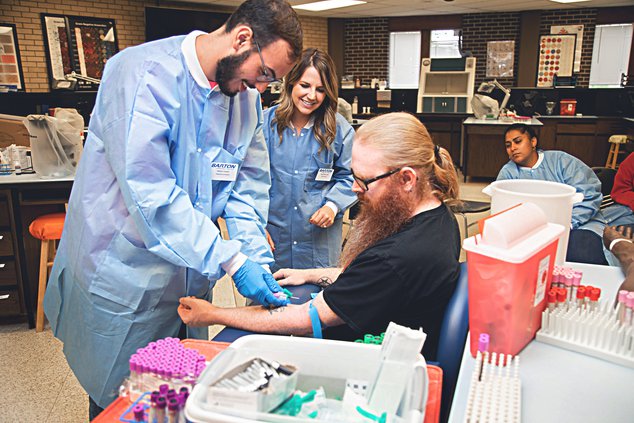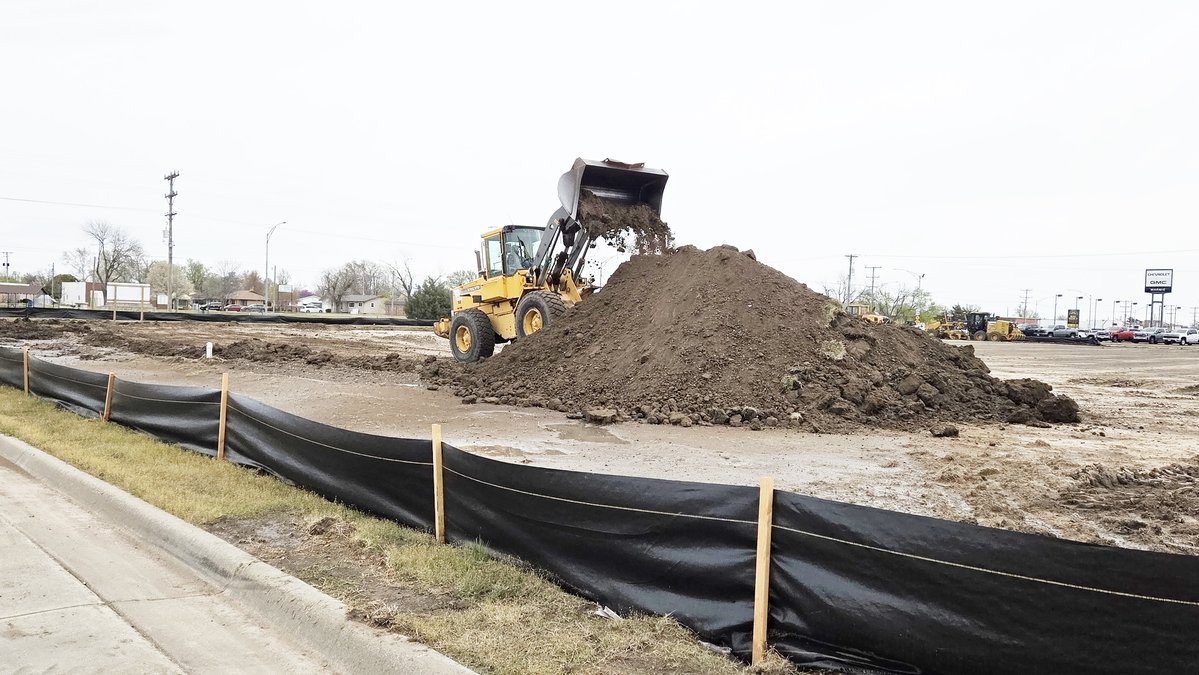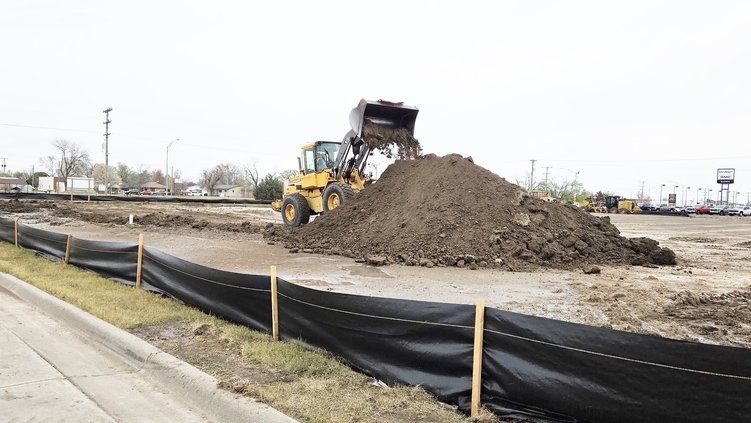

Barton Community College alumni and adjunct instructor of Barton’s Medical Lab Technician (MLT) Program Tyler Brown wanted to be a dental hygienist, or so she thought. After completing Barton’s phlebotomy course as a pre-requisite for a hygienist program, she realized she had a new dream.
“Taking that phlebotomy course was the best decision I ever made,” she said. “It opened a world for me that I never knew existed, plus opened a door to a trade that I had no clue I would not only love doing but would be good at. Eight years later, I am a medical lab technician at an amazing hospital (Clara Barton Hospital) and am now getting the opportunity to teach others what I love so much at an amazing college.”
As a Great Bend native, Brown chose Barton over other four-year programs so she could stay closer to her family and was able to complete the class completely online. She only had to attend clinicals in-person. Barton’s program is designed so that people from across the nation can complete the program online and can complete their clinicals at local sites.
“While in the phlebotomy program at Barton, I loved the instructors and I knew I would not find better mentors as I continued my education in this field,” she said. “It was also a bonus to be able to continue to work while I was going to school.”
MLTs are in high demand. Brown had a job before she even completed the program.
“It’s such an important field because we help doctors with the diagnosis and direction of treatment with their patients,” she said. “I love the ability to provide great patient care from behind the scenes.”
The COVID-19 pandemic has been challenging for Brown but she said it has not changed the amount of passion she has for what she does.
“Even through all the uncertainty, I have not loved my job more than I do today,” she said. “This pandemic has really put into perspective how important being an MLT really is, in not only providing excellent patient care, but providing diagnoses for our providers.”
MLT Program Director Karen Gunther said job outlook and security is extremely positive for technicians and said Brown’s experience is typical in that most students have offers for employment before even completing the program.
“Employment of clinical laboratory technologists and technicians is projected to grow 18 percent from 2020 to 2030, faster than the average for all occupations,” she said. “About 25,900 openings for clinical laboratory technologists and technicians are projected each year, on average, over the decade.”
Gunther said MLTs are often an overlooked sector of the medical landscape even though they are vital.
“MLT’s are responsible for 70% of all decisions regarding a patient’s diagnosis, treatment, hospital admission, and discharge,” she said. “There can be no hospital without a lab because labs are essential in determining patient diagnoses, patient management of their disease and therapy and screening for specific conditions.”
Gunther said it’s important to realize that while MLTs often work in hospitals there are a myriad of possibilities.
“There are just so many job opportunities including research, forensic science, clinical lab work, blood banks, veterinary hospitals, public health careers and many more,” she said. “Every day can bring a new challenge or ‘mystery’ to solve.”
For more information on the MLT program, contact Gunther at guntherka@bartonccc.edu or (620) 786-1133 or visit mlt.bartonccc.edu.








